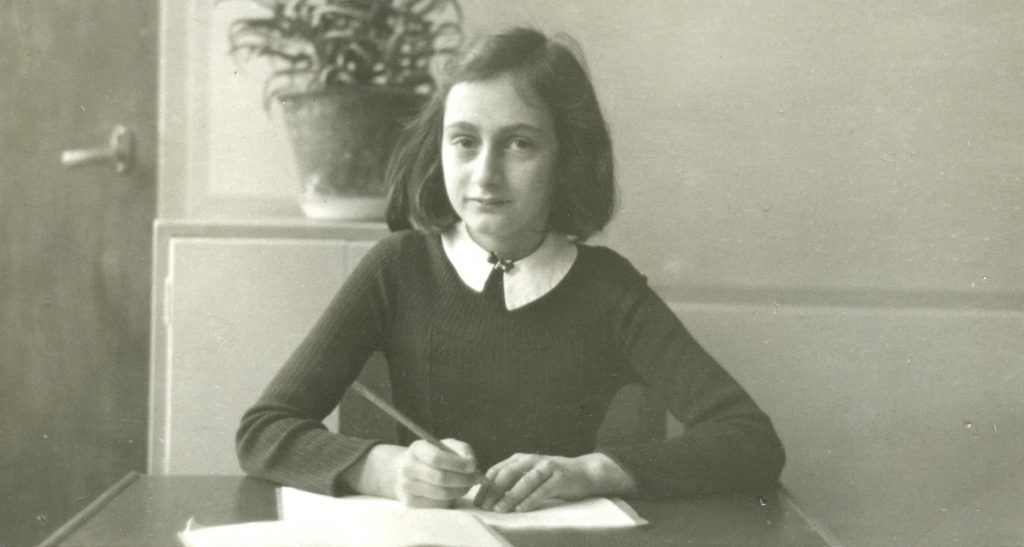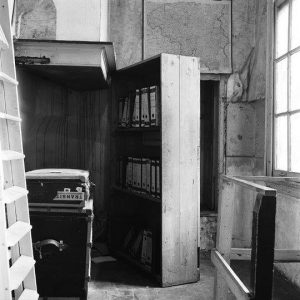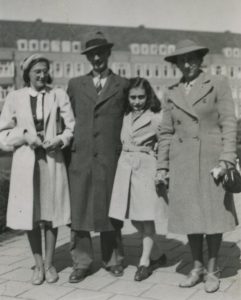What the 75th anniversary of Anne Frank’s arrest means for today
The Frank family and those in hiding with them were discovered and arrested on August 4, 1944. History professor Adam Seipp reflects on the importance of remembering this event even 75 years later.

By Alix Poth ’18

The bookcase was discovered as the entrance to the secret annex, leading to the arrest. (Photo: Anne Frank House)
Seventy-five years ago this month, Anne Frank and those hiding with her in the secret annex were arrested. Through the extraordinary piece of literature that is The Diary of Anne Frank, we see the world suffered a massive loss on August 4, 1944.
Commemorating events like the Franks’ arrest is critical for more reasons than one, according to Adam Seipp, history professor in the Texas A&M College of Liberal Arts and researcher of modern German history and the Holocaust. It not only remembers the enormity of the victims’ suffering, but allows us to understand what led to the atrocities in the first place.
The horrors of the Holocaust, and stories like those of Anne Frank, remind us how fragile social bonds were 75 years ago, and how fragile they still are today.
“The Holocaust was an extraordinary event in human history. What’s terrifying about it is how un-unique it was,” Seipp said. “The threats that created the Holocaust are not gone, which is why it’s crucial to understand them and confront them.”
Anne Frank wrote for a broad audience, and the immediacy of her circumstances combined with the voice of a relatable adolescent allowed her writing to have a widespread impact. However, Seipp said people’s desire to focus on only the inspiring aspects of The Diary isn’t an accurate portrayal of the book.
“What’s terrifying about [The Holocaust] is how un-unique it was. The threats that created the Holocaust are not gone, which is why it’s crucial to understand them and confront them.”
“As Americans, we want to put an optimistic, hopeful spin on Anne Frank’s story, as seen when our plays and movies focus on her line, ‘In spite of everything I still believe that people are really good at heart,’” Seipp said. “But that’s not the reality of the entirety of the story; it wasn’t simple like we want it to be. The story of Anne Frank is left without resolution.”
Even 75 years later, teams are still investigating what led to the infamous arrest. Retired FBI agent Vince Pankoke launched an investigation in 2017 to use modern technology to examine the evidence surrounding the arrest, with plans to release the findings of the investigation on the anniversary.
The Holocaust is worth studying on its own account, Seipp said, as such a profound event in human history deserves to be thoroughly understood. Studying the Holocaust also reveals both the threats and the consequences of authoritarianism and systemic racism.
“In the modern mind, the Holocaust is the central event in the accounts of the 20th century,” he said. “As seen in stories like Anne Frank’s, and in using language of the concentration camps to talk about the violation of human rights today, the Holocaust is not soon to be forgotten.”
But, as a historian, Seipp said we must continue to insist on telling the story accurately, and expanding it to the larger lens of human rights so we can have informed discussions about it. Even today, with accounts of mass-killings in Myanmar, South Sudan, Syria, and more, genocide is not yet a thing of the past.
“The mantra around the events is ‘never again’… yet there are state sanctioned mass killings that happen today. Our world is saturated with mass violence,” Seipp said. “We want to put the events of the Holocaust in a black box labeled ‘evil’ and think that it could never happen again. But it did happen. It reminds us of how present genocide was then, and how present it is even now.”
Learn more from Adam Seipp by taking History 405: History of the Holocaust in Fall 2019.


